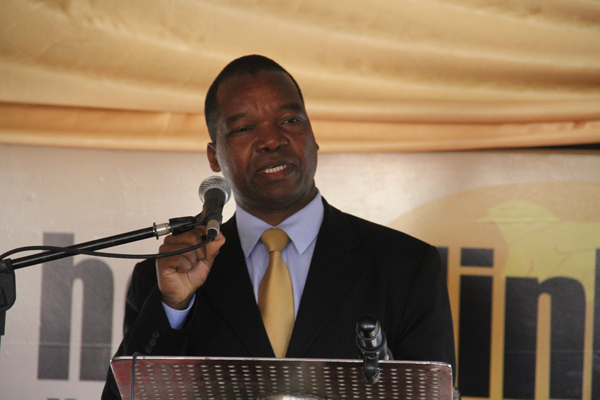
THE persistent cash shortages in Zimbabwe are affecting the poor who are paying the biggest price for the government’s failed policies as most of their goods and services are now being paid through barter trade.
BY VICTORIA MTOMBA

Tafadzwa Kandinga, a single mother from Doro Pindo, said she sells firewood in Mutare and gets a bar of soap for a bundle that costs $2.
Dora Pindo is a peri-urban centre close to Mutare.
Kandinga has five children and one of them has failed to access Grade 7 results due to a $15 debt owed to the school.
“I normally receive groceries after helping people with household chores and the situation has worsened with the cash crisis. I have not been able to get any cash for some time now,” she said.
Maromo Noah* from the same area said due to the cash challenges, he only received about 2kg of maize for every 20kg of maize milled at his grinding mill.
He said the area had a lot of construction projects and most of the builders and contractors received payments in the form of groceries, which in some cases were not equivalent to the work they would have done or the service they would have rendered.
- Chamisa under fire over US$120K donation
- Mavhunga puts DeMbare into Chibuku quarterfinals
- Pension funds bet on Cabora Bassa oilfields
- Councils defy govt fire tender directive
Keep Reading
Payment in groceries is prevalent in these areas and the poor are being exploited because of the cash challenges in the economy, he said.
Other than spawning barter trade, the cash shortages have also affected small traders who thrive on buying and selling.
Gladys Dube from Empandeni in Plumtree, said the small women’s club she is part of was no longer mobilising funds in Unites States dollars and had turned to the South African rand due to cash challenges.
“We contribute R10 each in the group in a fortnight. we are 17, and we buy airtime in rands which we sell in rands as well,” she said.
“We make a bit of profits, although it’s lower than what we used to get in the past when we used to buy goats and resell them in US$.
“The money is no longer available and the goats were also affected by the drought.”
A local economist, Prosper Chitambara said barter trade was prevalent in countries that faced cash shortages.
“The cash shortage is worsening informalisation because less money is now in the informal sector, although some segments have money,” he said.
Economist Rongai Chizema said barter trade showed that the poor were losing out through the barter exchange system as one would not get the real value for the goods or services they supplied.
He said the poor were not financially included as some of them could not access money from the banks unless they provided title deeds as collateral.
Chizema urged government to come up with a strategy to sell vending sites to the vendors over a period of time, which would then be used as collateral to secure loans from banks.
Youth Empowerment and Transformation Trust director Lucy Makaza Mazingi said the cash shortages were affecting youths who constituted 67% of the population as they were mostly in the informal sector.
She said youths had never experienced economic freedom.
“They are being affected because most of them are unemployed,” she said.
“The only jobs they know is changing money, importing goods from China and South Africa, but where do they get the money to import the goods?
“Most of them do not even have cash with them due to the cash challenges.”
Mazingi said some of the youth were spending most of their time in bank queues looking for money.
The Zimbabwe Chamber of Informal Economy Association secretary for gender and women affairs, Charity Mandishona said the sector was struggling due to the cash shortages as the bond notes were inadequate to solve the cash crisis.
“The economy has 94,5% in the informal sector and 5% in the formal sector who are now going to the corporates that are established to buy groceries with plastic money,” she said.
“The issue of plastic money is getting the rich richer and the policies by government are supporting the corporate sector and sidelining the informal sector.”
Zimbabwe Women’s Bureau director Ronika Mumbire said cash shortages were affecting women who were having to spend most of their productive time at the bank queues.
She said some women who received maintenance money had not been able to receive the cash because the men who were supposed to pay them the money always said they could not access cash.
“It looks like it’s competition between the US dollar and the bond notes and the maximum withdrawal limits have gone down as people are no longer able to access cash from the banks,” she said.
Pascal Mandeya, an economist, said the cash problems were due to structural rigidities in the economy.
“The country needs to go back to basics, for instance Zimra is owed $2 billion by companies that are not paying,” he said.
African Forum and Network on Debt and Development executive director Fanwell Kenala Bokosi said Zimbabwe needed to start producing and putting subsidies on some of the products to boost production.
The reserve Bank of Zimbabwe (RBZ) last month introduced bond notes to ease the cash shortages. However, RBZ governor John Mangudya says the notes that have the same value with the US dollar will be “drip fed” to the market to avoid causing inflation.
*Not his real name











